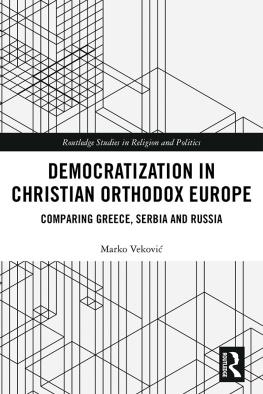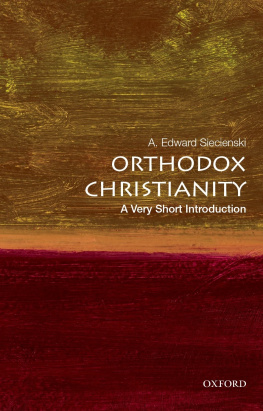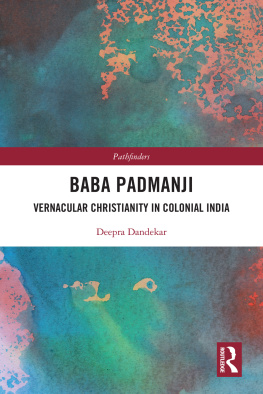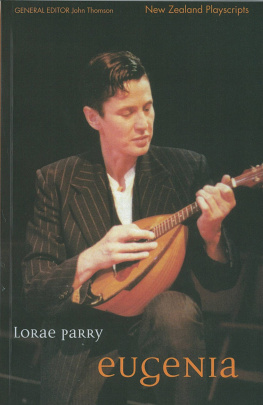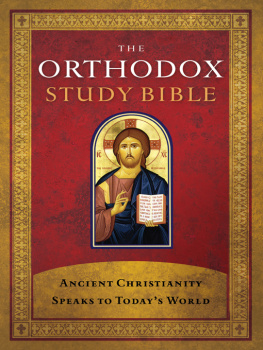Orthodox Christianity, New Age Spirituality and Vernacular Religion
Bloomsbury Advances in Religious Studies
Bettina E. Schmidt, Steven J. Sutcliffe and Will Sweetman
Founding Editors: James Cox and Peggy Morgan
Bloomsbury Advances in Religious Studies publishes cutting-edge research in the Study of Religion/s. The series draws on anthropological, ethnographical, historical, sociological and textual methods amongst others. Topics are diverse, but each publication integrates theoretical analysis with empirical data. The series aims to refresh the interdisciplinary agenda in new evidence-based studies of religion.
Appropriation of Native American Spirituality, Suzanne Owen
Becoming Buddhist, Glenys Eddy
Community and Worldview among Paraiyars of South India, Anderson H. M. Jeremiah
Conceptions of the Afterlife in Early Civilizations, Gregory Shushan
Contemporary Western Ethnography and the Definition of Religion, Martin D. Stringer
Cultural Blending in Korean Death Rites, Chang-Won Park
Globalization of Hesychasm and the Jesus Prayer, Christopher D. L. Johnson
Individualized Religion, Claire Wanless
Innateness of Myth, Ritske Rensma
Levinas, Messianism and Parody, Terence Holden
New Paradigm of Spirituality and Religion, Mary Catherine Burgess
Post- Materialist Religion, Mika T. Lassander
Redefining Shamanisms, David Gordon Wilson
Reform, Identity and Narratives of Belonging, Arkotong Longkumer
Religion and the Discourse on Modernity, Paul- Franois Tremlett
Religion as a Conversation Starter, Ina Merdjanova and Patrice Brodeur
Religion, Material Culture and Archaeology, Julian Droogan
Secular Assemblages, Marek Sullivan
Spirits and Trance in Brazil, Bettina E. Schmidt
Spirit Possession and Trance, edited by Bettina E. Schmidt and Lucy Huskinson
Spiritual Tourism, Alex Norman
Theology and Religious Studies in Higher Education, edited by D. L. Bird and Simon G. Smith
The Critical Study of Non-Religion, Christopher R. Cotter
The Problem with Interreligious Dialogue, Muthuraj Swamy
Religion and the Inculturation of Human Rights in Ghana, Abamfo Ofori Atiemo
UFOs, Conspiracy Theories and the New Age, David G. Robertson
This book is the outcome of a long journey that began during my undergraduate studies and was consolidated when I chose the evil eye as the main research subject of my doctoral thesis. I am more grateful than I can ever express to all my interlocutors in Crete and northern Greece; without their generous help, this work would never have been accomplished. In Rethymno, special thanks go to: Mrs Anthoula Simantiri and Alexandros Simantiris, whose hospitality and kindness made me warmly comfortable, as if living in a familial environment; Mrs Ntina Lempidaki, who brightened my life from the very first moment I met her at the Painting Workshop; Dr Aris Tsantiropoulos for his advice on Cretan culture; and Dora, Vaggelis and the family, Mary, Despina, Zavi, Evita, Persefoni, Nikos, Marcela and Katerina for the laughs and the evil eye conversations we shared. In Thessaloniki, I wish to thank Katerina and Andreas for making my everyday life throughout fieldwork sparkle with humour and joy; and Tzeni, Dorita, Dora, Mrs Eleni and Mr Lazos, Maria, Anna, Sofia and Kitsa for not hesitating to speak in front of a recorder, and for their friendship and help.
Some of my ethnographic data and their analysis included in this book have already appeared in previous publications, and I am very grateful to the editors and publishers for their permission to reuse the content here. More specifically, include some sections that were previously included in my article Orthodoxy at the Crossroads: Popular Religion and Greek Identity in the Evil Eye Practice, published in 2011 by the Journal of Mediterranean Studies (ISSN: 1016-3476).
My appreciation goes to the Department of Anthropology at UCL, London, UK, for the financial support of this project through the award of a Postgraduate Departmental Bursary in 20056. Part of the ethnographic data that appear in the book was collected between 2011 and 2017, during my frequent fieldwork visits to Greece in the context of my postdoctoral project (grant reference: SFRH/BPD/72003/2010), funded by the Portuguese Foundation for Science and Technology (FCT), to which I owe all my gratitude. The writing up of the book has been made possible through my position as a senior researcher at the Centro em Rede de Investigao em Antropologia (CRIA), ISCTE-IUL, Lisbon, Portugal and under the financial support from FCT in the context of the strategic plan of CRIA (UIDB/04038/2020), to which I am indebted.
I am grateful to Camilla Erskine, Lalle Pursglove and Lily McMahon at Bloomsbury Publishing, who have worked with me in different stages of the publishing process with determination and efficiency, for all their valuable help. I wish to extend my gratefulness to the series editors of Bloomsbury Advances in Religious Studies for agreeing to include this book in their series, and, especially, to Steven J. Sutcliffe for the encouraging comments, inspiration and the influence his work has had on my writings and on my understanding of the always difficult concepts of New Age and spirituality. I would also like to thank immensely the anonymous reviewer for the sharp comments and thoughtful remarks, which were delivered with extraordinary kindness and certainly improved the text of the final manuscript.
I am very thankful to Charles Stewart, who supervised my PhD thesis on the evil eye at the Department of Anthropology, UCL, for generously offering his expertise on Greek culture, through his thoughtfulness, encouragement, intellectual strength, insightful understanding and scrupulous discussions and readings of texts of much of the work presented here. I am more indebted than I can ever express to Brian Morris; without his captivating teachings, inspiring personhood and encouragement during my MA studies at Goldsmiths College, I would not have chosen to turn my anthropological research attention to religion in the first place. The communication we shared in the years that followed always constituted the most reassuring trait that I should hang in there in times of academic disenchantment. I am also grateful to Ritsa Deltsou, Penelope Papailias, Athena Athanasiou, Victoria Goddard, Allen Abramson and Vassiliki Chryssanthopoulou for provoking intellectual stimulants, insights and inspiration, while discussing various ideas on the evil eye during my undergraduate and postgraduate years of studying anthropology. My indebtedness goes to Diana Riboli: her brilliant intellect, inspiring work, constant encouragement, the common vision we share about what anthropology is and/or should be, our discussions on religion and spirituality, together with her very useful suggestions on this work, have made me a better anthropologist.
There are many friends and colleagues in my anthropological path who, during our shared PhD experience at UCL in London, our postdoctoral research phase at the Centre for Research in Anthropology (CRIA) in Lisbon, my current position as a researcher at CRIA, co-attendances at international conferences and elsewhere, have encouraged my efforts, supported me in times of disillusionment and/or provided academic aid and inspiration.


